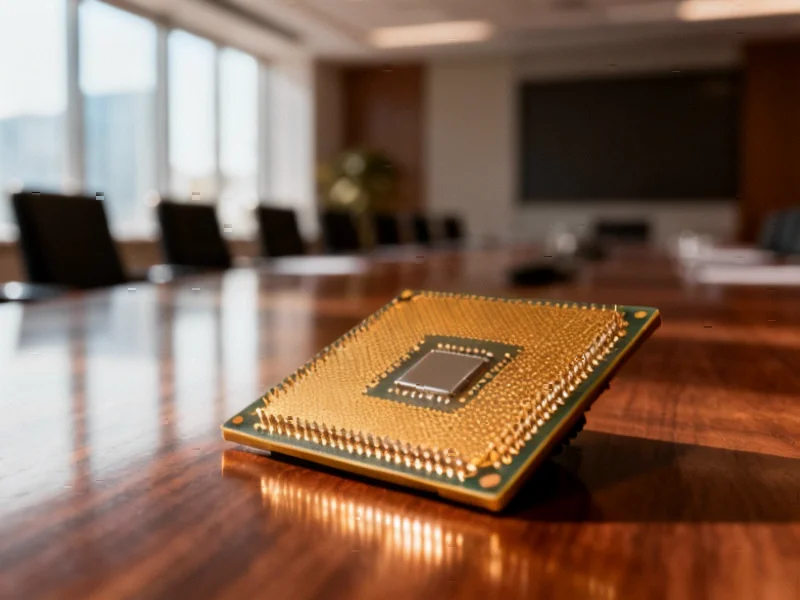According to CNBC, Nvidia CEO Jensen Huang expressed confidence in continuing to sell advanced semiconductors to China during a press conference at the APEC CEO summit in Gyeongju, South Korea on October 31, 2025. Huang described China as a “singular, vital, important, dynamic market” that cannot be replaced and argued that serving this market benefits both American and Chinese interests. His comments come amid ongoing U.S. export restrictions that limit Chinese firms’ access to advanced AI chips, with former President Donald Trump noting he discussed Nvidia chip exports with Chinese President Xi Jinping but didn’t address the most advanced Blackwell GPUs. Huang remains optimistic about continued market access despite these restrictions.
Table of Contents
The Strategic Business Imperative
Huang’s position reflects a sophisticated understanding of Nvidia’s long-term strategic interests. China represents approximately 20-25% of Nvidia’s data center revenue, making it impossible to simply walk away from without significant financial consequences. More importantly, Chinese tech giants like Alibaba, Tencent, and Baidu are developing competing AI infrastructure that could eventually challenge Nvidia’s dominance. By maintaining relationships and market presence, Huang positions Nvidia to influence the development of China’s AI ecosystem rather than ceding the field entirely to domestic competitors. This isn’t just about current revenue—it’s about shaping the future competitive landscape of global AI infrastructure.
Walking the Geopolitical Tightrope
The tension between Huang’s commercial pragmatism and U.S. national security concerns creates a precarious balancing act. While Huang emphasizes mutual benefit, Congressional Research Service reports have documented legitimate concerns about dual-use technologies enhancing Chinese military capabilities. The CEO’s diplomatic approach—framing technology exchange as beneficial to both nations—represents a calculated effort to influence policy through economic arguments. However, this strategy risks alienating Washington policymakers who view the situation through a national security lens rather than commercial opportunity. Huang’s optimism about continued access may be tested as export controls continue evolving in response to China’s technological advancements.
The Technological Adaptation Challenge
Nvidia faces significant technical hurdles in navigating export restrictions while maintaining Chinese market relevance. Current U.S. controls target specific performance thresholds, forcing Nvidia to develop China-specific versions of its chips that comply with regulations while remaining competitive. This creates an innovation tax—engineering resources that could be spent advancing core technology must instead be allocated to creating compliant variants. Meanwhile, Chinese companies are accelerating development of domestic alternatives, meaning the window for Nvidia to maintain technological leadership in China’s market may be closing faster than Huang’s optimistic comments suggest.
Broader Industry Ramifications
Huang’s stance has implications beyond Nvidia’s balance sheet. Other U.S. tech companies facing similar restrictions are watching how this plays out, as successful navigation could establish a template for maintaining Chinese market access within regulatory constraints. The APEC forum where Huang made these comments serves as an important venue for such corporate diplomacy, highlighting how business leaders are increasingly operating in the space between traditional commerce and international relations. If Huang’s approach succeeds, it could encourage more tech executives to advocate publicly for market access rather than quietly complying with restrictions.
Realistic Outlook and Risks
While Huang projects optimism, the reality is that the technological decoupling between U.S. and Chinese tech ecosystems appears to be accelerating. Chinese companies have made significant progress in developing domestic AI chips, and government policies increasingly favor homegrown solutions for critical technologies. Huang’s argument that “nobody can replace” the China market may become less true with each passing quarter as Chinese alternatives improve. The greatest risk for Huang and Nvidia is betting heavily on continued access only to find the market fundamentally transformed by import substitution and nationalist tech policies. His diplomatic campaign represents a high-stakes gamble that commercial logic can overcome geopolitical realities.
Related Articles You May Find Interesting
- The False Choice Between Climate Action and Development
- YouTube TV’s Disney Blackout Signals Streaming’s Content Crisis
- OpenStack’s Resilience Revival: Beyond the AI Hype Cycle
- The Creator Economy Blueprint: Why Small Businesses Must Adapt or Die
- AI Reality Check: Agents Still Can’t Replace Human Workers



